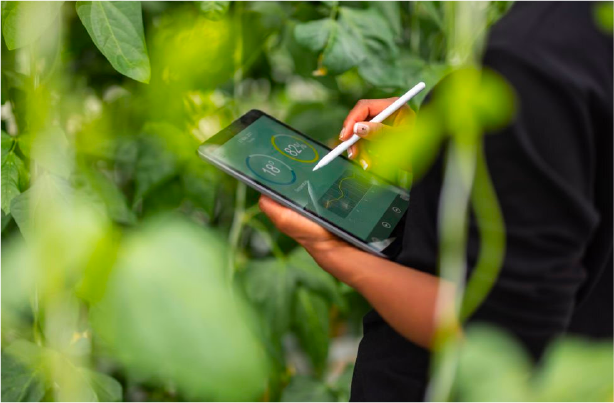
Agribusiness
With the Covid-19 outbreak, interrogations arise about Africa’s ability to ensure food security for its people.
Due to droughts, floods and swarm of locusts, the continent has faced recent food production challenges. There is still enough staple food to feed the majority of its citizens', thanks to our local farmers and imports from around of the world.
However, the outbreak of Covid-19 has emphasized the need for the continent to focus its efforts on becoming self-sufficient regarding food such as wheat, maize rice and proteins, as well as value-added and processing of raw materials.
The key is to build and growth with what we have.
Looking at more structure value chains in other parts of the world, Africa will continue to import certain food but, thanks to the current global situation, there is an opportunity for Africa to restrategize and leverage on its competitive advantages like – arable land, affordable labour, good rainfall in parts and available fresh-water mass.
Agriculture - Africa’s real potential
Agriculture remains the sector with the most growth potential in Africa, especially across sub-Saharan Africa.Statistics suggest that the sector contributes about 23% to the continent’s GDP and employs 70% of population .
There is more to explore with regards to farming and that this pandemic outbreak has emphasised the need to explore new ways to become self-sufficient .
The continent can win big in embracing intra-Africa trade in the agribusiness space. Covid-19 has already sparked conversations about inter African trade as the lockdowns around the world, create important challenges in the value chain.
Reduce Import Dependence
The current reality is that many countries in Africa are over-reliant on imports from the East or West to meet their food needs. Two-thirds of African countries are net importers of food. Intra-Africa trade provides the opportunity to reduce this reliance on food from outside the continent and create more employment opportunities across the food value chain.
If we can build partnerships, move crops efficiently between countries, it would be a significant step on the road to self-reliance. Imagine being able to move crops between Nigeria, the biggest producer of yams and cassavas, and Kenya or between South Africa and Uganda, one of the biggest tea and coffee producers in the world, seamlessly across Africa.
There is also a need to develop infrastructure that facilitates cross-border trade under the African Continental Free Trade Agreement (AfCFTA), in order to create exponential growth in intra-Africa trade in the near future.
Digital Transformation
The role of technology in Africa’s agricultural sector is growing rapidly.
According to the African Development Bank, there are currently more than 350 agritech companies operating on the continent and Covid-19 generally has accelerated digital adoption across sectors.
Many farmers are mobile phone owners and can potentially contribute to the agribusiness value chain. The new interest is around the ‘’ integration of platforms’," the objective is to to ensure the easy flow of inputs and produce while seamlessly enabling payments and collections, as well as access to knowledge and data.
Considering the complexities around smallholder producers, the lack of infrastructure and markets, Sub-Saharan Africa is the ideal playground for this technology.For example Standard Bank’s One-Farm proof of concept platform, could unlock the potential of the value chain from farm to fork. This platform aims to bring together a network of digitised solutions – from input suppliers to offtakers and corporates who facilitate the trade – and ultimately improve the quality and quantity of agricultural output across the continent.
As we still face the pandemic, Africa has the opportunity to strengthen regional relations in agribusiness and finally start the new journey the self-sufficiency when it comes to food security.
